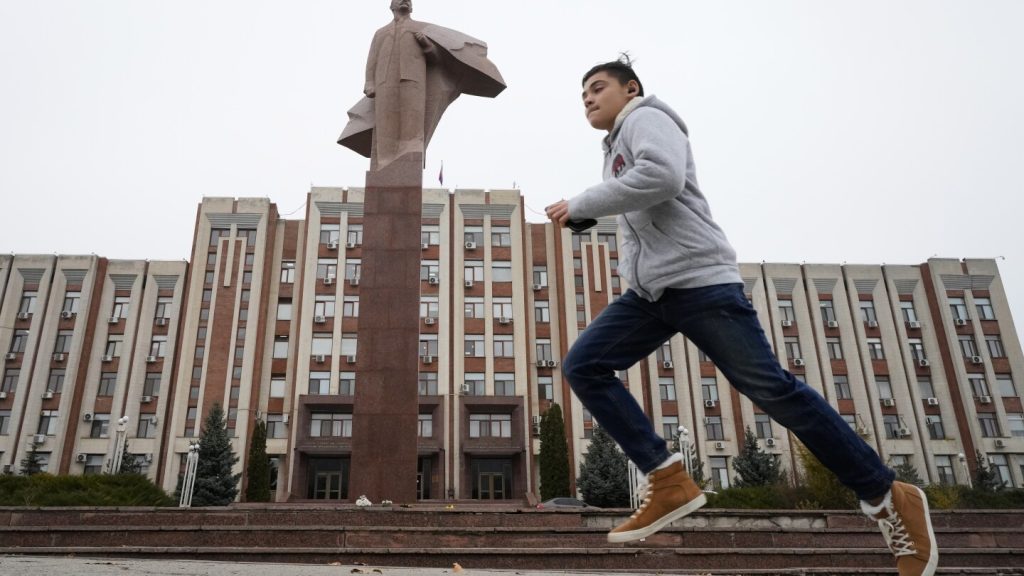Fears have been rising in Moldova that the country could be the next target for Russian aggression, following the invasion of Ukraine two years ago. Like Ukraine, Moldova is a former Soviet republic that has aligned itself with the West and hopes to join the European Union. The breakaway territory of Transnistria, located between Moldova and Ukraine, has become a source of tension, as it is home to a Russian military base with 1,500 troops. Despite Transnistria’s independence not being recognized internationally, Moscow-friendly sentiments in the region have caused concerns.
Several developments in Transnistria have led to comparisons with the separatist movement in eastern Ukraine that preceded Russia’s involvement in the conflict. Explosions, the assassination of an opposition leader, and a helicopter incident have fueled fears of Russian interference in the region. Moldova’s Bureau for Reintegration Policies has warned of further actions planned by Russia in Transnistria, aimed at increasing panic and weakening the economy. However, experts suggest that military aggression may not be in Russia’s best interest, as destabilizing Moldova through other means is already effective.
Moldova’s government sees Russia engaging in a broad “hybrid war” against the country by funding protests, meddling in elections, and spreading disinformation to undermine Moldova’s EU aspirations. The national intelligence agency has reported plans by Moscow to launch a destabilization campaign as Moldova prepares for an EU membership referendum and a presidential election. Minister Mihai Popsoi emphasized the need for societal resilience to combat these hybrid threats and prevent further destabilization efforts by Russia.
An incident involving the destruction of an empty helicopter in Transnistria has stirred tensions in the region. While Transnistrian authorities blamed Ukraine for the incident, Moldova denied any attack took place, labeling it an attempt to spread fear. Experts have raised doubts about the authenticity of the incident, suggesting it was staged for dramatic effect. As Moldova faces escalating challenges amid the conflict in neighboring Ukraine, concerns persist regarding further provocations and attempts to destabilize the region.
The reintegration of Transnistria into Moldova remains a challenging prospect, with deep-seated distrust and political complexities hindering progress. Scholar Ion Marandici expressed skepticism about achieving reintegration by 2030, citing political obstacles and opposition. The European Union has reassured Moldova that the Transnistria issue will not impede its EU membership aspirations, offering hope for a peaceful resolution. Efforts to engage with the breakaway region through economic incentives and diplomacy are seen as essential in managing the conflict and preventing further escalation.
Moldova’s Foreign Minister highlighted the importance of Ukraine’s resistance and Western support in deterring Russian aggression, emphasizing the need for vigilance in safeguarding Moldova’s sovereignty. Despite ongoing challenges and provocations, Moldova remains committed to pursuing a peaceful resolution to the Transnistria conflict. The complex dynamics between economic interests and security concerns shape the ongoing struggle for stability in the region, with efforts focused on preventing further destabilization and fostering dialogue towards reconciliation.


